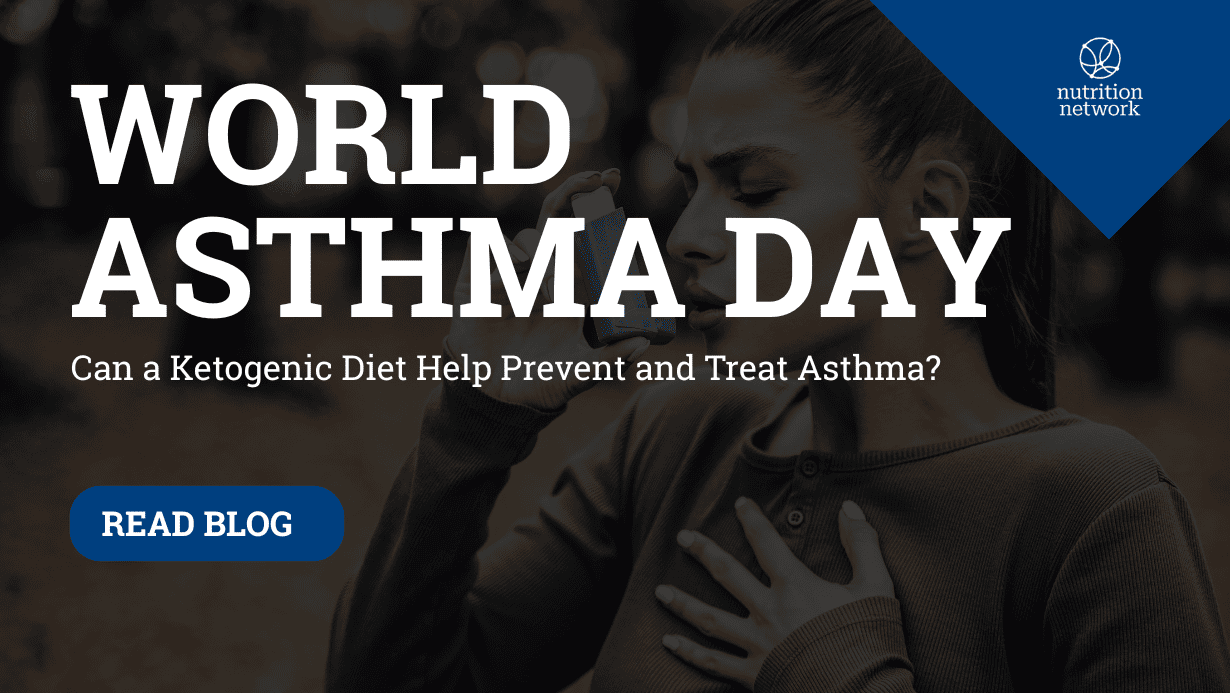
Each year, World Asthma Day reminds us that despite modern medical advancements, millions of people still struggle to breathe freely. Asthma, a chronic inflammatory airway disease, continues to burden both individuals and healthcare systems. While inhalers and medications help manage symptoms, they don’t cure the root causes. But what if a food-first approach like the ketogenic diet, could provide real relief?
Let’s explore how this high-fat, low-carbohydrate lifestyle might do just that.
Asthma is not just a lung condition:
It’s a systemic issue driven by chronic inflammation and an overactive immune response. The hallmark features include:
- Airway inflammation
- Bronchial hyperresponsiveness
- Mucus overproduction
- Constriction of airway muscles
Common triggers like allergens, viruses, pollutants, and even stress provoke the immune system, which overreacts and narrows the airways. Importantly, diet plays a key role in either fueling or calming this inflammation.
Asthma’s Growing Impact and the Limits of Conventional Treatment
Over 262 million people globally are affected by asthma, and it causes around 455,000 deaths annually according to the World Health Organization. In children, it’s one of the leading causes of school absenteeism, and in adults, a major contributor to lost productivity and decreased quality of life.
Conventional therapies like corticosteroids and bronchodilators manage acute symptoms and inflammation. But long-term use carries risks like immune suppression, hormonal imbalances, and metabolic side effects. Worse, they do little to address why inflammation is occurring in the first place.
So the question remains: What if we could prevent or reduce asthma severity by targeting root causes through nutrition?
The Ketogenic Diet: Anti-Inflammatory Powerhouse
The ketogenic diet, characterized by very low carbohydrate and high fat intake, shifts the body into a metabolic state called ketosis, where fat not glucose is the primary energy source. This shift has wide-ranging effects on:
- Insulin sensitivity
- Systemic inflammation
- Oxidative stress
- Immune modulation
These are the very mechanisms that play a central role in asthma pathogenesis. Let’s look at the evidence that positions the ketogenic diet as more than just a weight-loss trend it may be a therapeutic ally for asthma sufferers.
Historical Roots: A Forgotten Discovery from the 1930s
Asthma and ketosis have crossed paths before nearly a century ago. In a 1930 study published in Archives of Pediatrics, researchers used a ketogenic diet in pediatric patients with asthma and reported significant improvements in symptom frequency and severity (Schmidt et al., 1930). Despite these promising results, the intervention faded into obscurity with the rise of pharmaceutical treatments.
But with today’s resurgence in interest around nutritional therapies, this forgotten finding is worth reexamining.
A Preventive Effect Starting in the Womb?
A 2020 review titled The Role of Short-Chain Fatty Acids in the Interplay between a Very Low-Calorie Ketogenic Diet and the Infant Gut Microbiota (De Giorgi et al., 2020) sheds light on a compelling connection. While it does not claim that a ketogenic diet during pregnancy or lactation directly prevents asthma, it does suggest that ketone body metabolism and short-chain fatty acid production may positively shape the infant gut microbiome, which is intricately linked to immune development and asthma risk.
In short, maternal dietary patterns that reduce inflammation and support microbial diversity including those resembling a ketogenic profile may have downstream benefits in reducing asthma susceptibility in offspring. While more human data is needed, it’s a tantalizing hypothesis that warrants further exploration.
Real-World Relief: A Case Report on Ketosis and Asthma
In a 2020 case report titled Alleviation of Asthma Symptoms After Ketogenic Diet (Alshammari et al., 2020), a young adult female experienced remarkable improvement in her asthma symptoms after initiating a ketogenic diet. Over time, her dependence on bronchodilators and inhaled corticosteroids diminished, and her symptom-free intervals increased dramatically.
While anecdotal, this real-world evidence supports the mechanistic theory: reducing carbohydrate intake and improving mitochondrial function can stabilize airway inflammation and improve respiratory outcomes.
Time to Rethink Our Plate?
Asthma is more than a respiratory issue, it’s an inflammatory, immune-driven condition with clear links to metabolic dysfunction. The ketogenic diet offers a non-pharmaceutical strategy to address these root causes. Historical data, emerging microbiome science, and real-life patient cases all point in the same direction: ketogenic nutrition deserves a place at the table in asthma prevention and treatment conversations.
As we mark World Asthma Day, let’s broaden the toolkit. Medications are vital but perhaps it’s time to start prescribing food as medicine, especially for a condition so deeply intertwined with inflammation and immune function.
Learn how to implement food as medicine through our Ketogenic Training
